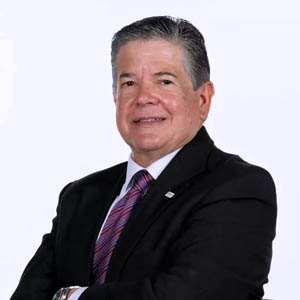Insight: The evolution of business education

Dennis R. Román-Roa on how business schools are adapting to change.
Business education has undergone a significant transformation in recent years, driven by rapid technological advancements, evolving industry demands and a growing need for graduates equipped with the skills to navigate a complex global landscape.
Higher education institutions are responding with innovative approaches that reshape traditional graduate degrees and introduce new, dynamic programs.
One of the most prominent shifts is the increased emphasis on experiential learning. Beyond traditional case studies, business schools are incorporating real-world projects, exploratory visits, courses during international trips and internships into their curricula.
This allows students to apply theoretical knowledge to practical situations, develop critical problem-solving skills and gain valuable experience before entering the workforce. Many institutions are also partnering with businesses to discuss live case studies, providing students with direct exposure to current industry challenges.
Technology integration is another key driver of change. From online learning platforms and data analytics tools to virtual reality simulations and artificial intelligence-powered learning assistants, technology is being woven into every facet of business education.
In modern business campuses, students not only learn about technology but also through technology, developing digital literacy and adaptability — skills crucial in today’s business environment. Online MBA programs and hybrid learning models are also gaining popularity, offering flexibility and accessibility to a wider range of students. Flexible MBA programs, like the one offered at Sagrado, are gaining popularity due to their accessibility and adaptability.
The curriculum itself is evolving to reflect the changing needs of businesses. There is a growing focus on data analytics, with courses in business analysis, managerial analytics and business intelligence becoming increasingly common.
Sustainability and social responsibility are also gaining prominence, as businesses are expected to consider their impact on the environment and society. As a result, courses on ethics, corporate social responsibility and sustainable business practices are now essential components of many business programs.
Furthermore, business schools recognize the importance of soft skills and interdisciplinary learning. Communication, teamwork, leadership, entrepreneurship and critical thinking are no longer considered secondary skills but are actively cultivated through dedicated courses, workshops, group projects and leadership development programs.
Many institutions are also encouraging students to explore other disciplines, such as engineering, design or public policy, to foster a more holistic understanding of the interconnectedness of business and society. Some schools even encourage students to pursue minors in unrelated fields to develop a multidisciplinary mindset.
Finally, the traditional lecture-based model is being challenged by more interactive and engaging pedagogical approaches. Active learning strategies, such as mirror classrooms, peer-to-peer learning and project-based learning, are becoming more prevalent.
These methods encourage student participation, collaboration and critical thinking, leading to deeper understanding and improved learning outcomes.
Business education is undergoing a dynamic transformation. Higher education institutions are embracing experiential learning, integrating technology, adapting curricula to reflect industry needs, emphasizing soft skills and adopting more interactive teaching methods.
These changes are designed to equip future business leaders with the knowledge, skills and adaptability necessary to thrive in a rapidly changing and increasingly complex world. As the business landscape continues to evolve, business education will undoubtedly continue to adapt and innovate to meet the challenges and opportunities of the future.

Dennis R. Román-Roa is the dean of the Business School at Sacred Heart University.












